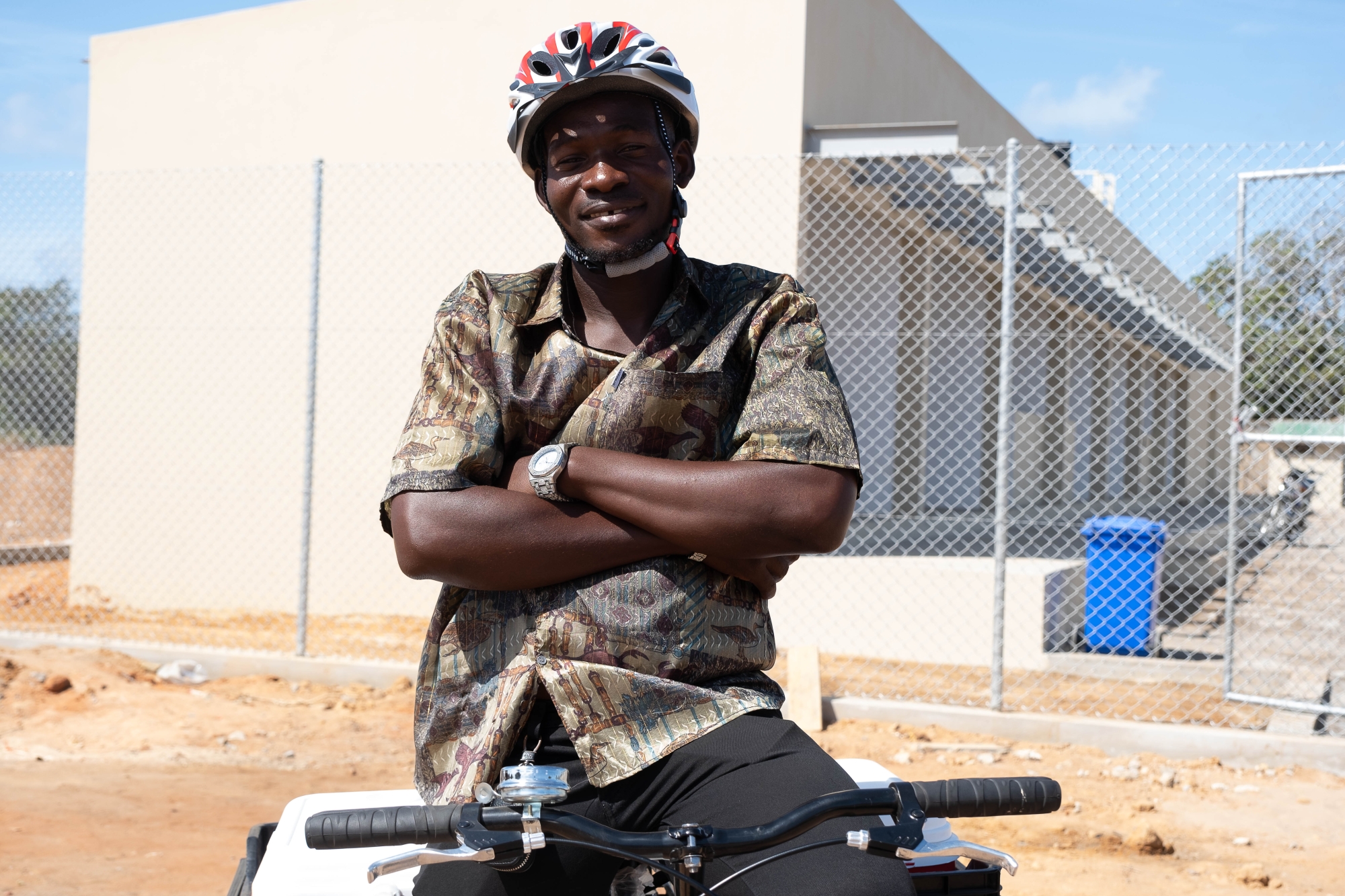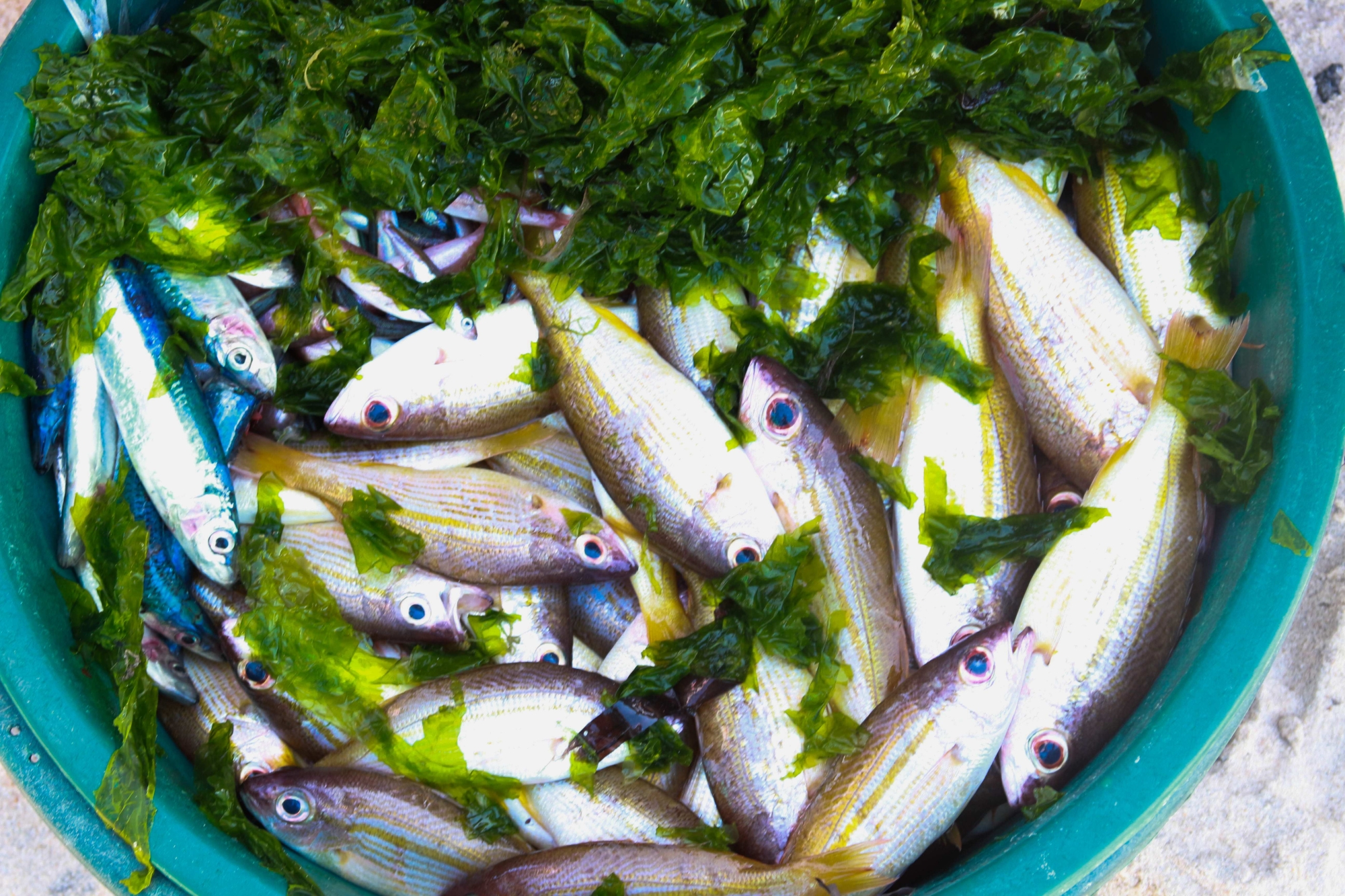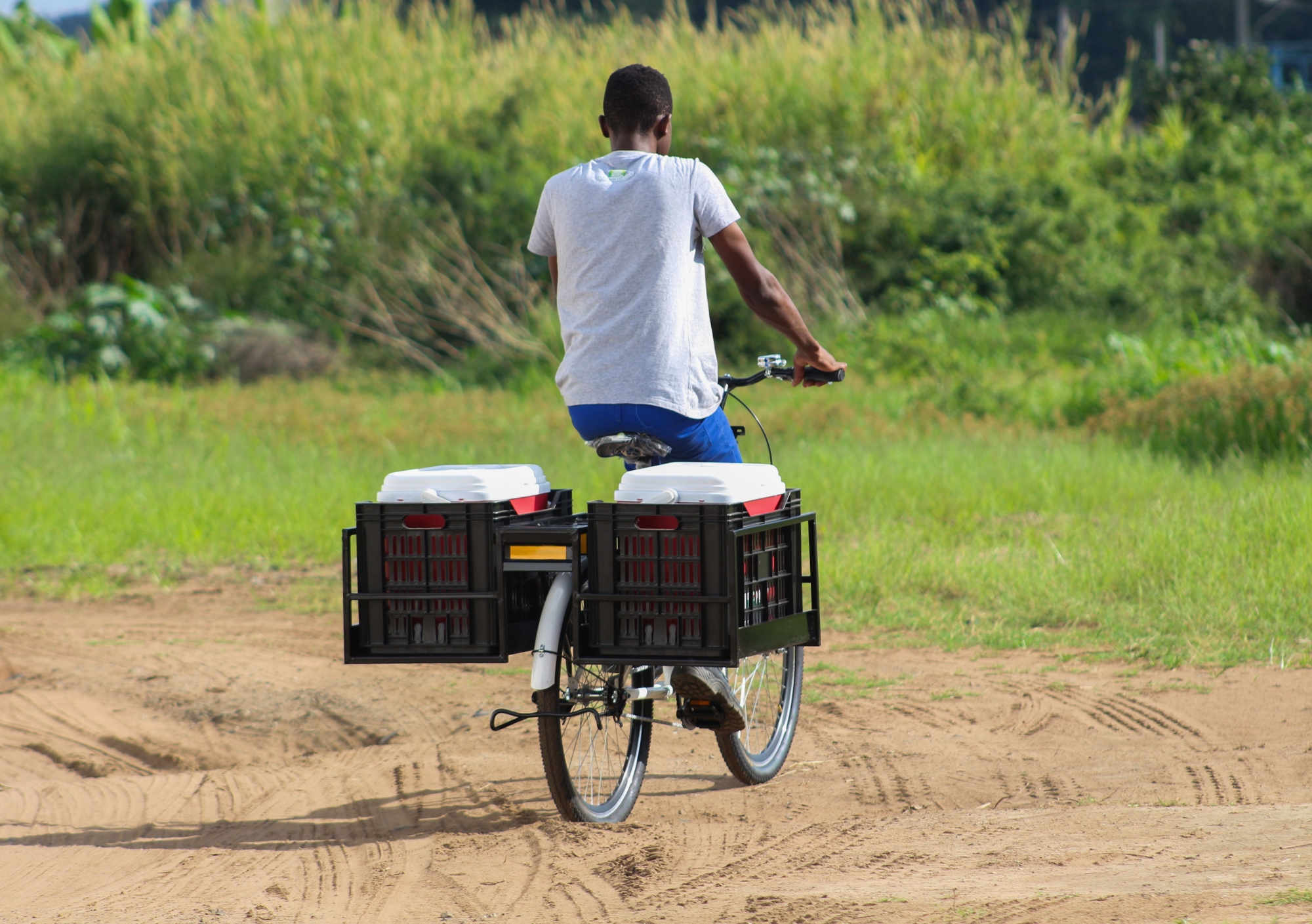Saíde Guilherme, 35, has been a fish vendor from age 11 and since then he has been walking long distances daily in slow motion through the bustling neighbourhoods of Pemba selling fish, overwhelmed by pain and exhaustion of the work.
"I walk about 20 to 30 kilometres every day to sell fish in Paquitequete, Expansão and Gingone neighbourhoods. This is terrible," says Saíde, while sitting close to the seashores, where he meets his colleagues to make their daily schedule.
With a huge bowl of fish on his head, weighing around 15kg, Saíde walks through the streets of Pemba mixing Portuguese and Macua, the common language in Pemba, to attract the city's customers, shouting: "ehopa! ehopa!” (fish in Portuguese).
Inside the bowl, tiny amounts of water dripping from the fish are mixed with seaweed, deliberately placed to preserve the seafood. "To be honest, I don't have any ice to preserve my fish. So, I put seaweed on top of the fish," he says staring at the bowl.
According to the Municipal Council, there are around 285 street vendors in the fish value chain in the city of Pemba, the capital of Cabo Delgado.

Saide pictured here on the Nutribike
Long hours, long journeys, few results
One of the biggest challenges street vendors face in Pemba and other parts of Mozambique, is having to travel long distances by foot, reaching more customers. This takes many hours, leading to the possibility of the fish getting spoilt and lose its propriety. Pemba is in the province of Cabo Delgado, in the northern part of Mozambique. According to the Balance of the 2019 Economic and Social Plan report, 35,187 tonnes of fish were caught in Pemba.
According to the report of fish value-chain assessment made by GAIN Mozambique in 2022, fish are highly perishable consequently, lack of appropriate handling facilities and conditions at most landing sites results in significant pre-marketing losses, ranging from 30-60% of the catch.
Additionally, the lack of means to preserve sea food contributes to an increase in cases of food poisoning. In 2015, the WHO estimated that one in 10 people get sick from eating unsafe food every year, leading to 600 million cases of food-borne illness and 420,000 deaths worldwide annually.
Delia Grace Randolph, a global leader in food safety research in traditional markets, says "food safety has been much neglected in the development sector, largely because, almost no one realized the scale of the food safety problems.
Pemba continues to suffer from food insecurity. According to the Cabo Delgado Food Security and Nutrition bulletin – 1st quarter of 2024, food insecurity levels are around 66%, almost 30% higher than in the last post-harvest season (37%) and food insecurity has been exacerbated by the armed conflict affecting the region since October 2017.
According to United Nations report launched in 2022 only one in 10 displaced families in Cabo Delgado has an adequate diet.

Fish preserved in seaweed
NutriBike: Fresher. Faster. Further
This context is precisely where the NutriBaik (NutriBike in English) initiative operates. It is an intervention to solve the storage challenges faced by street vendors. It provides street vendors suitable equipment for preserving and transporting their products maintaining quality, as well as enabling them to cover longer distances and faster.
Consumers will have access to fresher and safer products, contributing to the reduction of diseases caused by the poor preservation of these foods.
NutriBaik initiative is a bicycle equipped with two cool boxes, a helmet, and a reflective vest. 100 street vendors in Pemba have received this equipment as part of the pilot phase. Through this initiative, GAIN hopes to improve the work-conditions of street vendors and guarantee safe food for the population of Pemba.
But this equipment alone will not solve the cold chain challenge. NutriBike will therefore be integrated into the project to build fresh food markets in Pemba (an initiative being implemented by GAIN, in partnership with the Municipality of Pemba).
As part of the construction of these markets, cold storage systems (ice production and food preservation) are being installed. This equipment will also benefit these street vendors who, with this project, will have access to ice for better preservation of their products.
NutriBike is being developed by GAIN, through the Food Systems Strengthening program in partnership with the Municipality of Pemba and SBN Mozambique, with funding from the Embassy of the Kingdom of Norway.
A meaningful change for street vendors
Beneficiary-Vendors Data by City:
City of Pemba: 200
City of Quelimane: 50
City of Nampula: 60
This initiative will further strengthen the collaborative relationship between municipal authorities and street vendors, who will become taxpayers in a more structured manner by paying fees to the municipality for their commercial activities.
NutriBike will particularly benefit street vendors, with a focus on women and young people whose main source of income is selling seafood. The pilot phase will provide data to ensure sustainability and evaluate expansion strategies, potentially making the initiative national and covering other food products.
"This project will help me. Considering the hours I was taking each day walking long distances to sell fish, now it will only take me 30 minutes. I will reach more people, and my products and my small business will no longer spoil."
NutriBike aligns with GAIN's strategy pillars, focusing on vulnerability, resilience, environmental protection, and supporting displaced young people and women in Pemba due to conflict situations in their regions of origin.
Mozambique loses about 30% of its agricultural production every year in post-harvest losses caused by inadequate handing and ineffective household storage, according to WFP.
NutriBike Kit:
• Bicycles equipped with two plastic crates and two thermal boxes.
• Helmets
• Reflective vests
• Wheeled motorcycles with a cool box for transporting ice
• Refrigerators with a capacity of 300 to 400 liters, for storing ice
• Cell phones for the engagement component

Vendor on a Nutribike